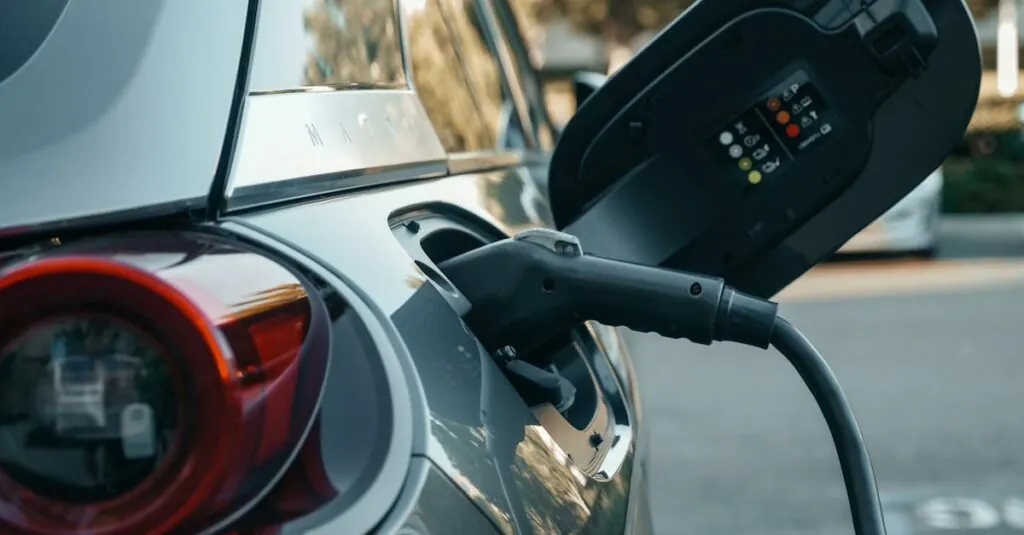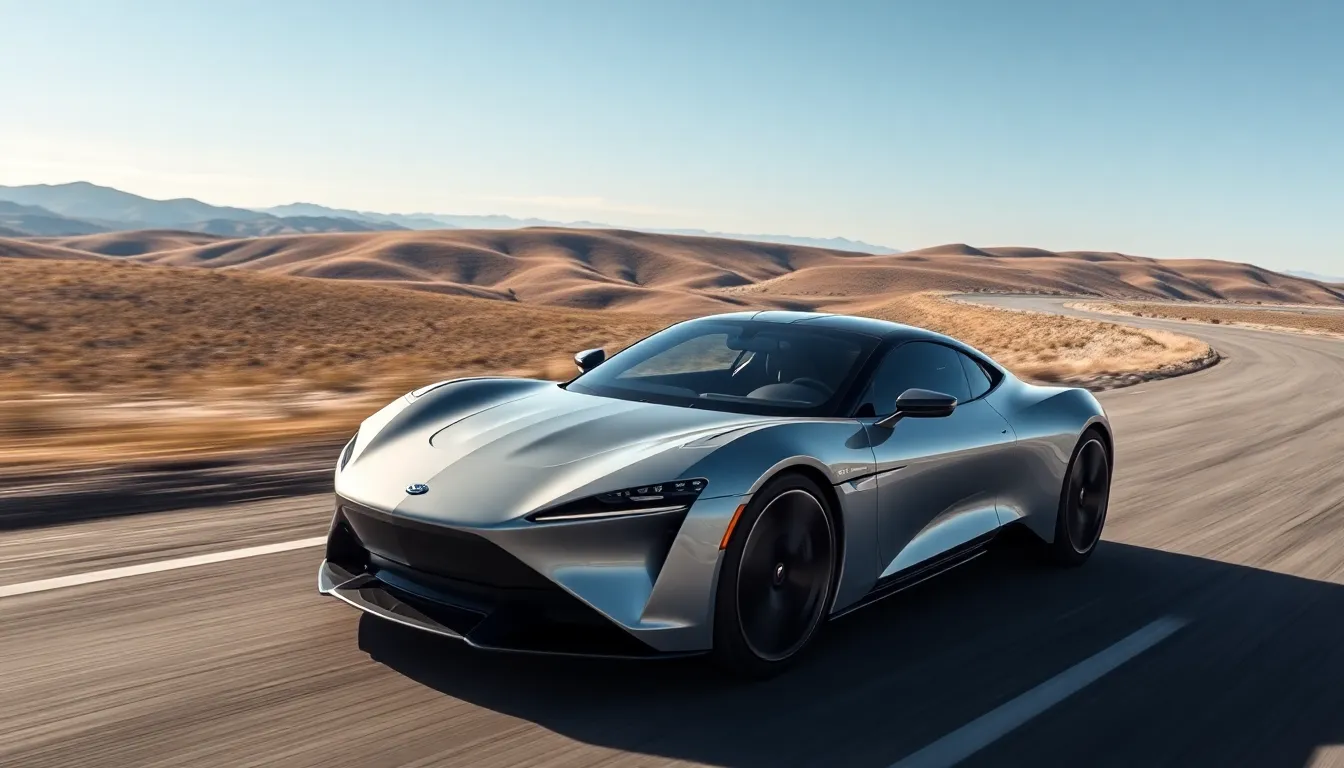Electric vehicles are zipping into the spotlight, and it’s no wonder why. With promises of lower emissions and savings on gas, they’re like the cool kids on the automotive block. But before jumping into the electric pool, it’s essential to weigh the pros and cons. After all, nobody wants to end up with a car that’s more trouble than it’s worth—unless it comes with a complimentary espresso machine.
On one hand, owning an EV can feel like a green superhero moment, saving the planet one charge at a time. On the other hand, there are quirks and challenges that might leave some scratching their heads. So buckle up as we dive into the electrifying world of EV ownership, exploring the ups and downs that come with trading in that gas-guzzler for a silent but stylish ride.
Table of Contents
ToggleOverview of Electric Vehicles
Electric vehicles (EVs) consist of cars powered entirely by electricity. Charging them occurs at home or through public charging stations. The absence of internal combustion engines allows EVs to produce zero tailpipe emissions, significantly reducing air pollution. Many consumers prioritize EV ownership due to their eco-friendly nature.
Battery technology enhances the driving range and efficiency of these vehicles. Most modern EVs offer ranges exceeding 200 miles on a single charge. Electric motors provide instant torque, delivering a smooth and responsive driving experience. Drivers often appreciate the quiet operation and reduced maintenance requirements compared to traditional gas-powered vehicles.
A growing network of charging infrastructure improves accessibility, alleviating some range anxiety among potential owners. Incentives like tax credits and rebates from governments encourage adoption, making the transition more enticing. Additionally, the cost of electricity remains generally lower than gas prices, translating to long-term savings for EV owners.
Tackling concerns around charging, many manufacturers equip vehicles with fast-charging capabilities, reducing downtime during long trips. However, not all areas boast extensive charging options. Some urban environments may still lack sufficient public charging stations, which can deter potential buyers.
Overall, electric vehicles represent a significant shift toward sustainable transportation. They not only promise environmental benefits but also offer financial incentives. Buyers should evaluate their individual needs and local resources when considering the switch to an electric vehicle.
Pros of Owning an EV
Electric vehicles (EVs) offer numerous advantages that attract many consumers. The environmental benefits stand out prominently.
Environmental Benefits
EVs produce zero tailpipe emissions, significantly lowering air pollution in urban areas. This reduction directly improves public health by decreasing respiratory issues linked to poor air quality. As fossil fuel consumption decreases, the reliance on renewable energy sources, such as wind and solar, increases. Many individuals appreciate the contributing factor to climate change mitigation that comes with driving an EV. With advancements in battery technology, the lifecycle impact of these vehicles is also becoming increasingly favorable.
Cost Savings
Owning an EV often results in notable cost savings. The cost of electricity averages 50% less than traditional gasoline prices. Studies indicate that EV owners can save approximately $800 annually on fuel alone. Maintenance costs tend to be lower due to fewer moving parts in electric motors compared to internal combustion engines. Tax credits and incentives from local, state, and federal programs further enhance the financial appeal, making EV ownership more attainable for individuals and families. Over time, these savings accumulate significantly and contribute to the overall economic advantage of owning an electric vehicle.
Performance Advantages
Performance characteristics of EVs reliably impress drivers. Instant torque delivery provides a thrilling driving experience, allowing for smooth acceleration. Many modern models feature advanced technology enhancements, improving handling and stability on the road. Quiet operation offers an enjoyable ride, contributing to reduced noise pollution in communities. Charging infrastructure is expanding, with fast-charging stations becoming increasingly prevalent. This development enhances convenience and reduces downtime during long trips, making EVs a practical choice for many drivers.
Cons of Owning an EV
Owning an electric vehicle (EV) presents challenges that potential buyers should consider.
Limited Range
Limited range remains a significant concern for many EV owners. While most modern EVs offer over 200 miles on a single charge, some models still struggle to reach further distances. Long road trips may require careful planning to ensure access to charging stations. Some drivers experience anxiety about running low on battery power before finding a charger. Users may find themselves needing to adjust their travel habits to accommodate the electric range.
Charging Infrastructure
Charging infrastructure can pose barriers to widespread EV adoption. While urban areas are gradually improving charging options, rural regions often lack sufficient stations. Some drivers report frustration when searching for charging points, especially in less populated areas. Charging times also vary, with fast chargers offering speeds that seldom match traditional refueling. This inconvenience may deter potential buyers, particularly those relying on longer travel distances.
Higher Initial Cost
Higher initial costs represent a prominent downside of EV ownership. Although prices have decreased for many models, EVs often still carry a premium compared to their gasoline counterparts. Consumers might pay anywhere from $5,000 to $10,000 more for an electric model. Additionally, insurance rates on EVs may be higher due to advanced technology and parts. Buyers focusing on budget constraints may hesitate to invest in EVs despite potential long-term savings.
Owning an electric vehicle offers a unique blend of sustainability and savings that many find appealing. With zero tailpipe emissions and lower fuel costs, EVs contribute positively to the environment and household budgets. However potential owners should weigh the challenges like limited range and charging infrastructure against the benefits.
As technology advances and charging networks expand it’s likely that the drawbacks will diminish over time. For those committed to eco-friendly living and willing to navigate the current landscape owning an EV can be a rewarding choice. Ultimately it’s about aligning personal needs with the evolving world of electric mobility.





